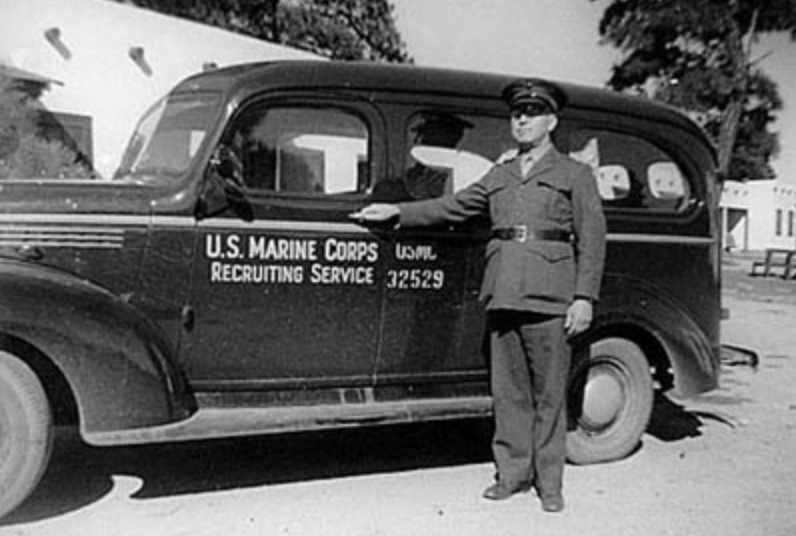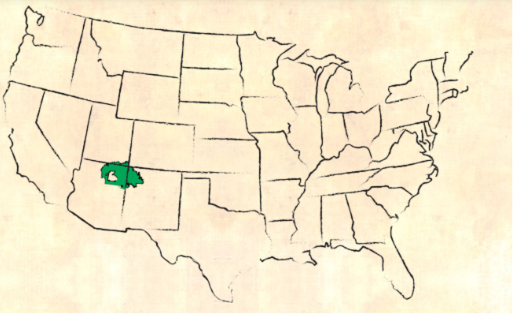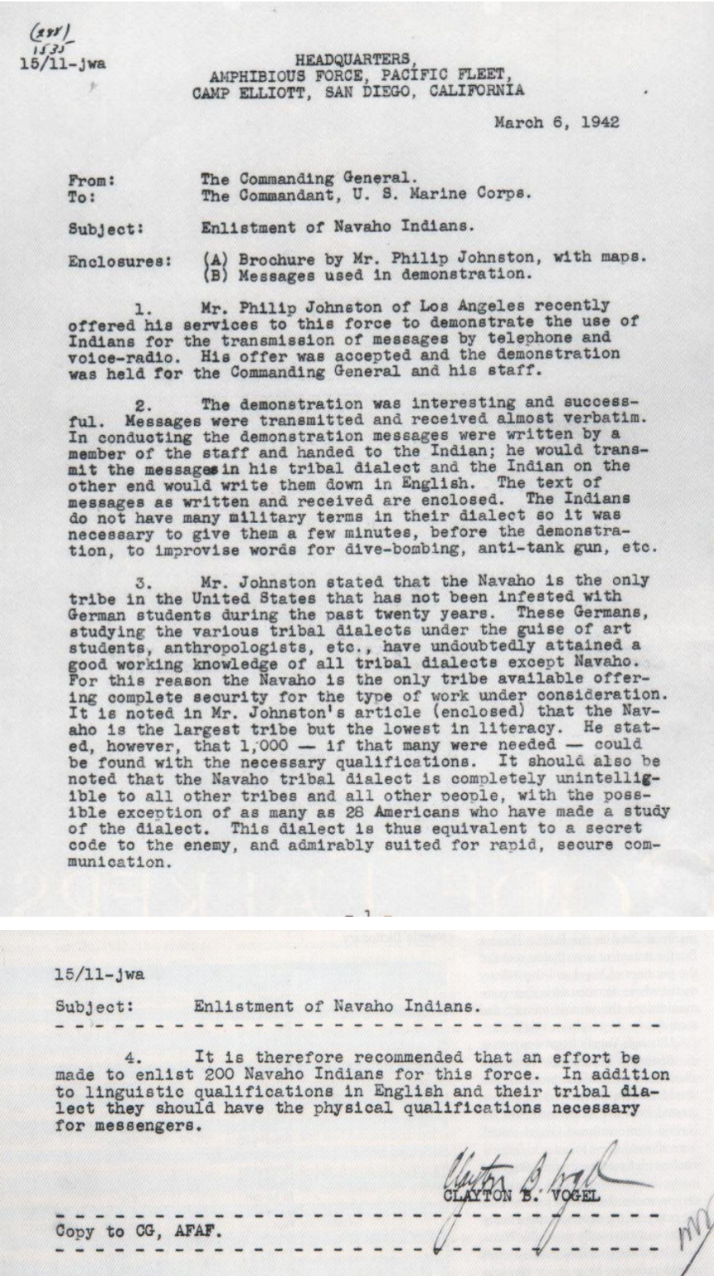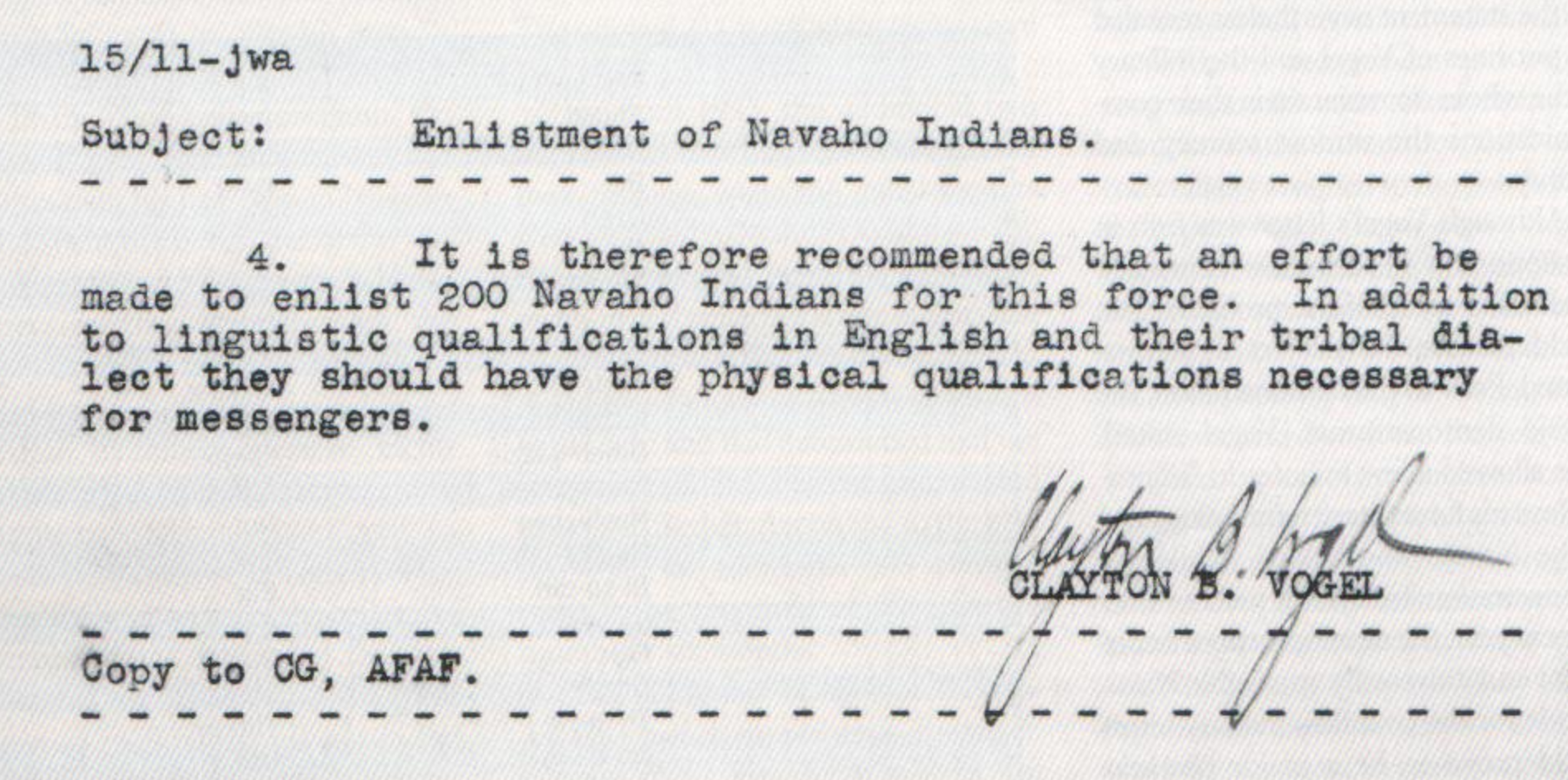Phillip Johnston
Phillip Johnston grew up on the Navajo reservation with his parents that were missionaries. He was a World War I veteran and knew the importance of finding a code that could not be deciphered easily. Remembering how complex the Navajo language was in his youth and the use of Choctaw during World War I, he contacted the Marines with the idea of using the Navajo language for a military code.

Technical Sergeant Philip Johnston~Navajo Indian Reservation ~ October, 1942.
“The Navajo is the only tribe in the United States that has not been infested with German students during the past twenty years. these Germans... Have undoubtedly attained a good working knowledge of all tribal dialects except Navajo.. however that 1000 (Navajos) - if that many were needed - could be found... With the possible exception of as many as 28 Americans who made a study of the dialect. This dialect is thus equivalent to a secret code to the enemy.”
~ letter from Phillip Johnston to the Commanding General of the US Marine Corps in 1942 about using Navajo Soldiers

Navaho Resvervation
The Recruitment Begins...
In 1942, the U.S. marines recruited 29 Navajo men. Each of the men had to work hard to meet the criteria of being a Code Talker such as speaking fluently in Navajo and English and attend seven weeks of basic training in San Diego. That was followed by intensive courses in transmitting messages and radio operation.
Many Navajos were eager to enlist in the military.
World War II was the first military conflict in which Native Americans could enlist because the draft in September 1940 included Native Americans even though they were not allowed to vote. Some joined for patriotism, aspirations of glory like in the John Wayne movies or wanting a job/employment, but most believed it was their duty and tradition.

A letter about Philip Johnston and the enlistment of the Navajo Code Talkers.
National Archives and Records Administration
Records of the United States Marine Corps
Record Group 127
“They saw that they were needed to protect home and country,”
~ Judy Allen: senior executive officer of tribal relations for the Choctaw Nation of Oklahoma

Enlistment of Navajo Indians ~ National Archives
“Many people ask why we fight the white man’s war. Our answer is that we are proud to be American. We’re always ready when our country needs us. “ ~ Raymond Nakai: World War II Navajo Code Talker
"When I was inducted into the service, one of the commitments I made was that I was willing to die for my country - the U.S., the Navajo Nation and my family.” ~Donald E Patterson: World War II Navajo Code Talker
Navajo Language
Navajo has a complex grammar and the language is very different from most other languages so trying to find a similar language was impossible.
Expectations
The Navajo Code primarily used word association. This worked by assigning a Navajo word to key phrases and military tactics. This system enabled the Code Talkers to translate three lines of English in 20 seconds.